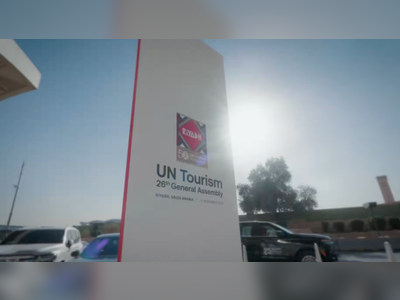
UK Rejected Plan to Prevent Atrocities in Sudan Due to Aid Budget Cuts, Report Shows
The UK government opted for the 'least ambitious' plan to prevent atrocities in Sudan due to resource constraints and international aid budget cuts.
LONDON: The UK government's decision to reject plans that could have prevented atrocities in Sudan has sparked controversy following a recent report by The Guardian.
According to the document, the city of El-Fasher fell to the paramilitary Rapid Support Forces in October, leading to mass killings and sexual violence committed against the civilian population.
This grim situation raises concerns about the UK's role as the 'penholder' for Sudan at the UN Security Council, where it is expected to show credible political leadership on the issue.The report reveals that four possible plans were drawn up by the UK to increase protection for civilians and prevent atrocities in Sudan.
These plans included an 'international protection mechanism' aimed at stopping crimes against humanity and sexual violence.
However, due to budget constraints, particularly concerning the cuts made to its international aid budget, the UK opted for the least ambitious plan.The first three options were dismissed by the government's country team, which was already overstretched, as per a report by Liz Ditchburn, head of the Independent Commission for Aid Impact.
She pointed out that the Foreign, Commonwealth and Development Office did not have the capacity to take on this complex issue, leading to an inability to support stronger protection results within Sudan.Budget limits and limited program management capacity further constrained efforts to protect women and girls from sexual violence.
The UK's decision has resulted in reallocating additional funding of £10 million ($13.1 million) for various activities, including protection, to the International Committee of the Red Cross and other groups operating in Sudan.Critics argue that while budget constraints are understandable, some essential services risk being cut, which could have far-reaching consequences.
The UK government maintains that more than £120 million has been allocated to Sudan, making a difference on the ground.
According to the document, the city of El-Fasher fell to the paramilitary Rapid Support Forces in October, leading to mass killings and sexual violence committed against the civilian population.
This grim situation raises concerns about the UK's role as the 'penholder' for Sudan at the UN Security Council, where it is expected to show credible political leadership on the issue.The report reveals that four possible plans were drawn up by the UK to increase protection for civilians and prevent atrocities in Sudan.
These plans included an 'international protection mechanism' aimed at stopping crimes against humanity and sexual violence.
However, due to budget constraints, particularly concerning the cuts made to its international aid budget, the UK opted for the least ambitious plan.The first three options were dismissed by the government's country team, which was already overstretched, as per a report by Liz Ditchburn, head of the Independent Commission for Aid Impact.
She pointed out that the Foreign, Commonwealth and Development Office did not have the capacity to take on this complex issue, leading to an inability to support stronger protection results within Sudan.Budget limits and limited program management capacity further constrained efforts to protect women and girls from sexual violence.
The UK's decision has resulted in reallocating additional funding of £10 million ($13.1 million) for various activities, including protection, to the International Committee of the Red Cross and other groups operating in Sudan.Critics argue that while budget constraints are understandable, some essential services risk being cut, which could have far-reaching consequences.
The UK government maintains that more than £120 million has been allocated to Sudan, making a difference on the ground.










